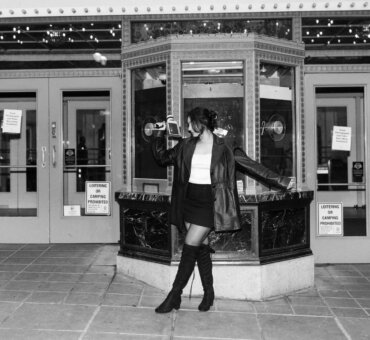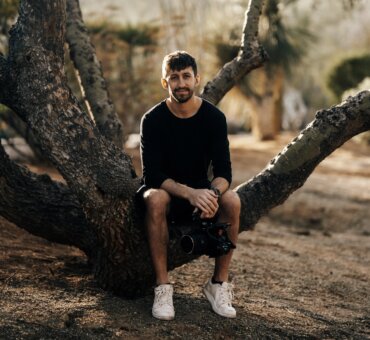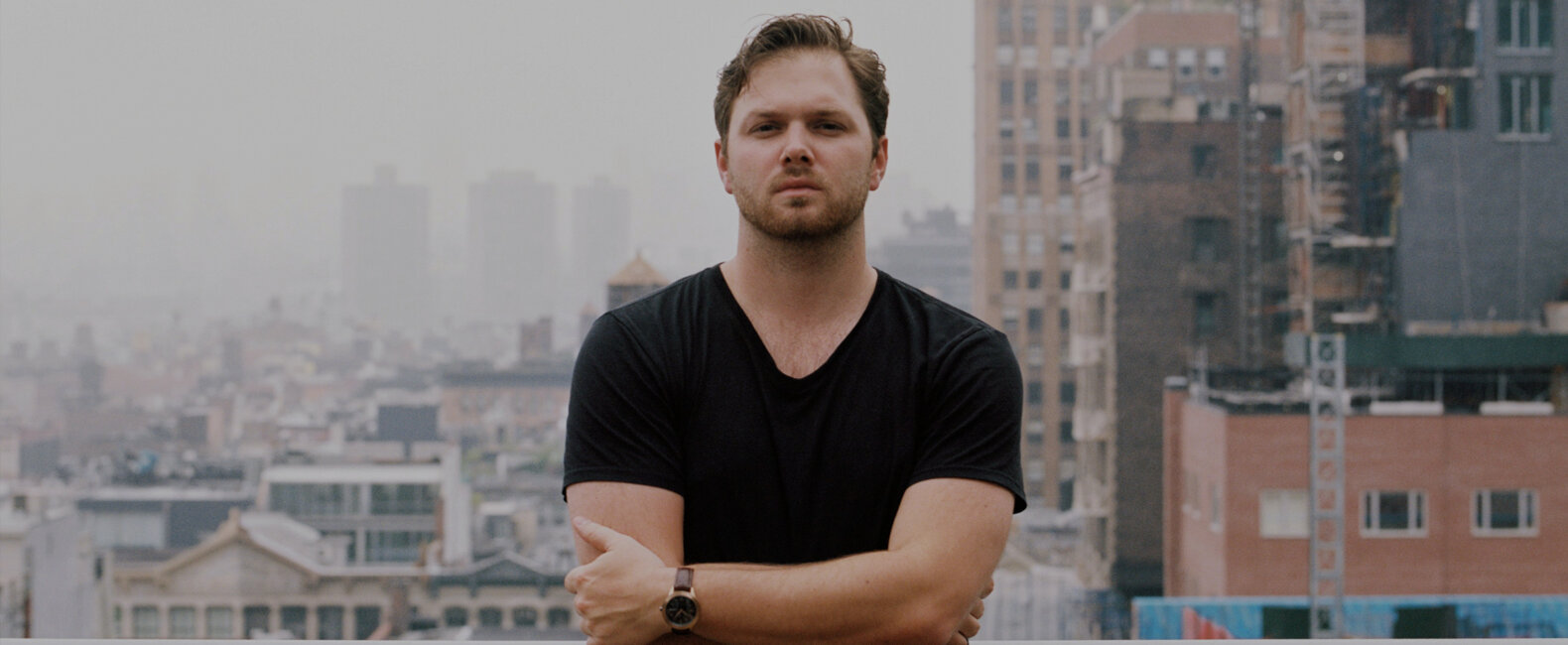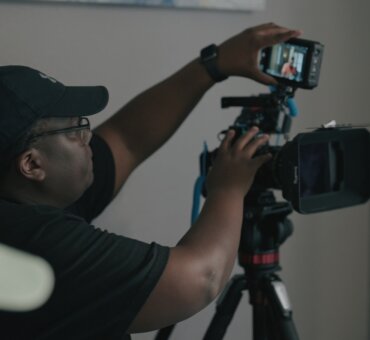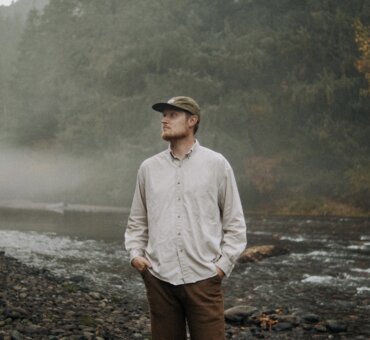Most people use a simple test to judge the quality of a film, book, song, photograph, etc. They see if they can remember it the next day. They see if it sticks with them. The general idea is that if something isn’t worth remembering, then it isn’t worth much at all. No matter what we’re creating, memorability is always the goal. At least that’s photographer Miller Mobley’s philosophy. “The challenge I give myself is: How can I make a memorable photograph today? If this were going to be my subject’s last photograph, what would I do to make it something other people would remember?” Considering Miller Mobley has created memorable photographs for nearly every celebrity we’ve ever heard of (a very partial list: Kevin Spacey, Morgan Freeman, Barack Obama, Philip Seymour Hoffman), we believe his philosophy holds water.
For Mobley, art is in the details. A great photograph isn’t made from broad strokes but from small tweaks. “The thing that’s going to make a photograph special is your ability to make tiny tweaks and adjustments that make a picture pop,” Mobley told us. “Only you have the ability to make your subtle tweaks.”
Here’s Miller.
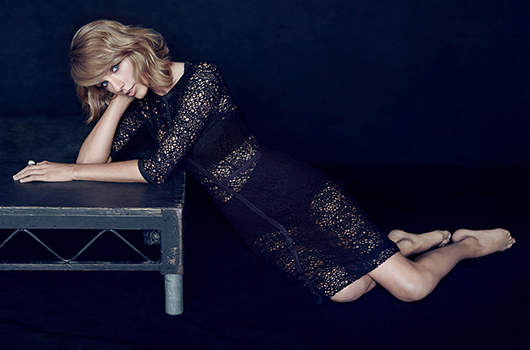
How do you define success?
Obviously money can define a lot of people’s success. And money is important. But for me, money has not been very fulfilling. Making great work is what’s fulfilling. The funny thing is that people who make great work usually make a lot of money as well, so the two end up going hand in hand anyway. The important thing to focus on, though, is not the money or the notoriety; focus on making great photographs. I have 20 to 45 minutes with a person to make a memorable photograph. That’s what I’m focused on.
How long did it take before you started making the photographs you wanted to make?
Years. Definitely years. I spent a lot of time seeing the work of photographers I was inspired by, but I personally couldn’t create that level of work yet. I couldn’t get there. There are so many factors: lighting, production value, location, talent. I started realizing just how much goes into a photo shoot besides you, the camera, and the subject. So how do you close that gap? You keep shooting.
In the beginning you’re making these huge chops at your work. You’re swinging an axe and making huge progress with everything you learn. But as you continue on, it comes down to these little tweaks. You can have the biggest budget, the best gear, the best lighting, and perfect set design; but the thing that’s going to make a photograph special is your ability to make tiny tweaks and adjustments that will make a picture pop. The source light can be anything, but only you have the ability to make your subtle tweaks.
A lot of times you’re the only person who knows if you’ve pushed a photograph far enough. It might look awesome to everyone else; but you know that if you’d just tweaked these few little things, you could have pushed it over the edge. And that’s when it starts getting fun. When you stop comparing yourself to other people and start comparing yourself to you. Your new work to your old work. And you know there are small adjustments you can make to satisfy yourself.

It might look awesome to everyone else; but you know that if you’d just tweaked these few little things, you could have pushed it over the edge. And that’s when it starts getting fun.
What do you think distracts photographers from making their best work?
I used to struggle with comparing myself to other photographers. That struggle with comparison has got to be at an all-time high right now. When I was coming up, Twitter had just exploded. For the first time, you had access to all kinds of photography people were doing, where they were traveling, what high-profile shoot they were on at any given moment. It became a huge distraction for me. It was terrible. I was constantly comparing myself to what another photographer was doing, so I decided to cut it off completely. And honestly, that was one of the biggest things that propelled me forward — when I stopped looking at all the garbage out there. It’s so easy to get wrapped up in what other people are doing and forget to create work in your own voice. At the end of the day, the only person you can compare yourself with is you.
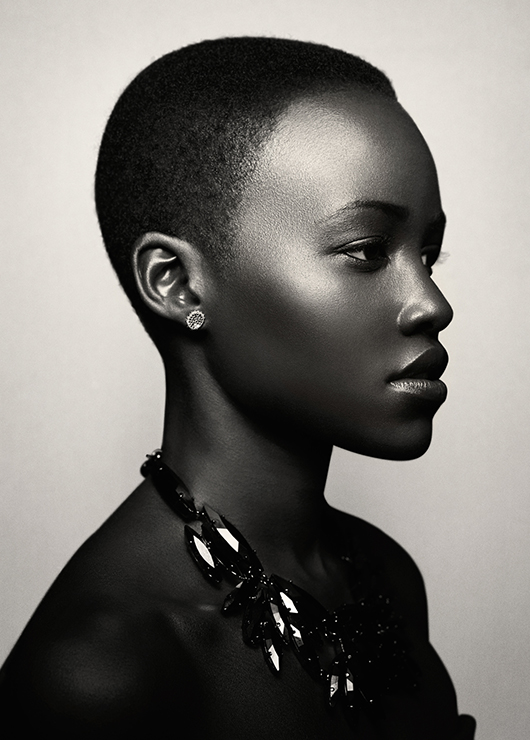
Do you still need validation from other people?
It definitely helps to get verbal affirmation. And I’m not going to lie: I do like it when people like my work. That gives me some fulfillment. But the thing that gives me the most fulfillment is whether or not I’ve pushed the envelope that day. Did I make an interesting tweak in the lighting that pushed me a step further? Did I move even an inch forward in my work? It could just be some new color move, some new composition idea. Whatever it is, at the end of the day I want to know I’ve taken that step. And if I did, then the whole thing has been worthwhile. I find a lot of fulfillment in that.
It’s so easy to get wrapped up in what other people are doing and forget to create work in your own voice. At the end of the day, the only person you can compare yourself with is you.
How do you stay excited about your work?
Photography is challenging, and that challenge still excites me. The challenge I give myself is: How can I make a memorable photograph today? If this were going to be my subject’s last photograph, what would I do to make it something other people would remember? That’s hard. That’s really hard. But it’s a great challenge to live up to. It forces me to make something special every time. It keeps me on my toes, keeps me motivated, keeps me excited. Imagine that every photo shoot is your subject’s last, and you’re going to get something good.






































































